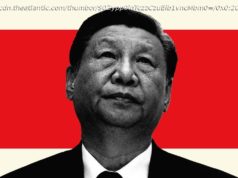China seeks support of EU, which shares both Beijing’s concerns about protectionism and Washington’s objections to Chinese business practises
China reached out for Europe’s support in its growing trade war with the US, leaving the European Union at risk of getting entangled in a conflict with repercussions around the world.
The EU is caught in a bind: It shares many of Washington’s grievances with Beijing’s trade practises, but is also under a threat of protectionist measures ordered up by US President Donald Trump.
In a rare diplomatic plea, China on Friday called on the EU to take a joint stand against US protectionism after Trump warned that he could slap another US$100 billion of extra tariffs on China’s imports.
“China and the EU… should take a clear stance against protectionism, jointly preserve the rules-based multilateral trade order, and keep the global economy on a sound and sustainable track,” Zhang Ming, the head of the Chinese mission to the EU, said in a statement.
“This is a joint responsibility of China and the EU. We must act together to make that happen,” Zhang said.
The EU declined to respond directly to the envoy’s invitation, insisting only that trade conflicts should be resolved at the World Trade Organisation, the Geneva-based body set up to resolve disputes.
The bloc is “firm in the belief that free and fair trade is one of the most powerful engines for growth, supporting millions of jobs and contributing to prosperity,” European Commission spokesman Daniel Rosario said.
The EU and the US themselves nearly descended into a trade war after Trump in March threatened to impose tariffs on steel and aluminium imports that would, if confirmed, punish European manufacturers.
But Trump granted Europe a last-minute exemption, giving EU negotiators until May 1 to come up with a solution to unfair trade policies alleged by the US leader.
The Europeans reject Trump’s allegations, which have mostly centered on Germany’s auto industry, and prepared a list of counter-measures in case the US reverses course and slaps on the tariffs.
The European Commission, which handles trade for the EU member states, said contacts with the US would continue next week, though French President Emmanuel Macron has angrily said that Europe should refuse to negotiate “with a gun to your head.”
Complicating matters, European leaders are largely in agreement with Trump that China fails to play fairly when it comes to international trade, not only about metals exports, but also market access for European companies and respecting intellectual property.
Many Europeans also rail against cash-flush Chinese tycoons who have snapped up European companies, sports clubs and airports, all while foreigners are barred from investing in equivalent industries in China.
China ranked 84th globally – behind Saudi Arabia and Ukraine – in the World Bank’s ease of doing business index for 2016, and second to last in a report by the Organisation for Economic Co-operation and Development on the restrictiveness towards foreign investment.
“The problem is the method,” a European official said, when asked about Trump’s hardball approach to Beijing.
“The US is completely ignoring WTO rules. Until now they at least kept up appearances, but no longer,” the official said.
Against China, the Europeans have always chosen the soft approach – through lures of investment deals and closer cooperation – said Fredrik Erixon, director of the European Centre for International Political Economy in Brussels.
But this strategy will remain “fruitless, partly because there isn’t any degree of confrontation, there is no bad cop next to the good cop and we need that,” he said.
However, he added: “While confrontation with China is necessary, Trump’s way of doing it has too much collateral damage and does not deal with the issue in a rational way.”






